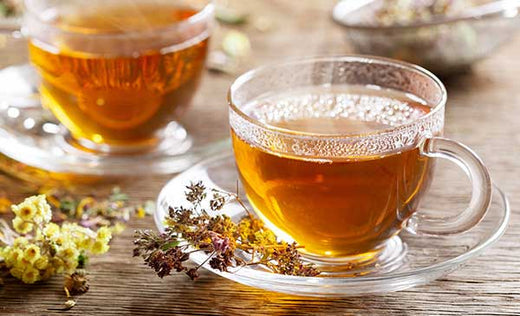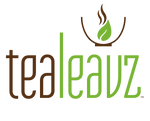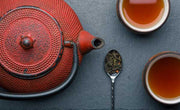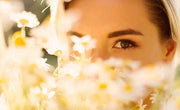Herbal tea and Caffeine free tea: What is the difference?

The world of loose leaf tea has so many delicious varieties from which to choose. But if you are sensitive to caffeine, "close enough" just isn't good enough when searching for a caffeine free tea. You need to know whether the herbal tea you selected is truly caffeine free.
Terms such as "caffeine-free" and "decaffeinated" may seem perplexing as they sound synonymous. In reality "caffeine-free" and "decaffeinated" have very distinct meanings. So let's dig into the meanings for both and put an end to the confusion.
Is loose leaf herbal tea caffeine free?
Even though people widely use the term herbal tea, it is actually misleading. Let's clarify.
True tea comes from the Camellia sinensis plant which naturally contains caffeine. So all true teas therefore have caffeine. The leaves undergo various processing methods to produce teas such as green and black tea, white, and oolong.
Herbal tea varieties on the other hand do not originate from the tea plant. They are infusions or blends of leaves, spices, fruit, bark, roots, or flowers that are naturally caffeine free. This is why most kinds of herbal teas are more accurately referred to as herbal tisanes.
True teas either have caffeine, or they have undergone a decaffeination process after harvest by the tea producer. Most herbal tisanes are caffeine free, but it is not a blanket rule. We will discuss that further later.
 |
Ginger Spice Lemongrass Tisane is a soothing and aromatic caffeine free herbal tea. The lemongrass adds zest to the soothing nature of ginger, peppermint, and licorice root for a warming cup of tea. |
What is the difference between caffeine-free and decaf tea?
Truly caffeine free tisanes achieve the title based on the ingredients in the blend. They are natural ingredients that do not contain caffeine. Decaf tea on the other hand are tea leaves that naturally contain caffeine. However, the leaves undergo chemical processing with carbon dioxide or ethyl acetate to remove the caffeine.
In the carbon dioxide method, they moisten the leaves. The process forces pressurized and heated CO2 through the leaves, bonding it with the caffeine molecules. Filters then remove the CO2 along with the captured caffeine.
This method still retains the natural flavors and antioxidant benefits of the tea. Some claim up to 90% of the efficacy. With the ethyl acetate method, they use a solvent to strip the caffeine from the tea leaf.
The key take away is that a decaf tea may still contain trace amounts of caffeine. Typically, unless you are highly sensitive to it, the small amounts of caffeine will go unnoticed by a tea drinker.
Decaf tea must contain 2.5% or less caffeine compared to its original state to be classified as such. This typically equates to about 2mg of caffeine. In comparison, an average healthy consumption of caffeine can range up to 400 mg per day.
 |
Native to South Africa, Tropical Green Rooibos is an unoxidized rooibos tea. This mild and fresh blend of rooibos green tea combines red rooibos with sweet passionfruit, juicy mango, tangy apricot, and orange. |
Are all herbal tisanes caffeine free?
Herbal tisanes are generally considered caffeine-free. But when asked if there is caffeine in an herbal tea type, "no" cannot be a blanket answer. Some types of herbal tea may include ingredients that naturally contain caffeine. A good example is Yerba Mate, a tisane popular in South America.
Checking the ingredients of specific herbal tea is essential if you are looking for a completely caffeine-free option.
Rooibos is naturally caffeine free herbal tea that originates from South Africa. Some say Rooibos tastes similar to black tea.
People often mix it with sugar and cream like black tea blends. It has a rich and nutty flavor. You can also try a spicy version like Rooibos Chai.
 |
Honeybush tea is a naturally caffeine free tea. A sister tea to Rooibos, it originates on East Cape of South Africa instead of the West Cape. Vanilla Honeybush has a sweet roasted flavor and honey scent of South African honeybush plant with the smooth vanilla bean taste. |
What are the health benefits of herbal tea?
Drinking herbal tea offers various health benefits depending on the ingredients used. Some common health benefits of herbal tea include:
- Improved digestion
- Relaxation
- Stress relief
- Immune system support
- Hydration
- And antioxidant properties.
Each type of herbal tea has its unique set of health benefits, making it a popular choice for those looking for natural remedies in their daily routine. For example, chamomile tea can aid in sleep and relaxation, peppermint tea can help with digestion, and ginger tea can assist in reducing nausea.
Explore our caffeine free teas where you'll find an extensive collection of flavors and aromas.





